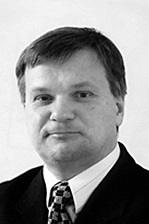Drawing lessons from presidential elections
Despite some interesting precedents in 1996, the 2001 presidential elections were undoubtedly much more innovative. Indeed, these elections provided a great deal of experience and created a number of precedents, both for society as a whole and the President as an institution, and both in terms of the election campaign and for the parties.
The 2001 election campaign took place in a situation where there was only one election campaign on the political calendar. Last year was comparatively quiet from the political point of view – although the popularity ratings of the triple alliance of the Riigikogu and its Government declined, the Government did pull through. Nor was it a general election year. Thus parties had good opportunities for an intensive election campaign. These elections were important in terms of the President as an institution. Issues of the development of the presidential institution arose. The issue of whether the outgoing President would become clearly and directly involved in the election of his successor or whether his intervention would remain subtle and indirect became important. The procedural and ceremonial side of the transfer of presidential power cannot be entirely overlooked either, as there was no earlier experience in this matter. Obviously, the election campaigns themselves have become more professional over the years. Estonian political parties have conducted parliamentary and local government election campaigns, but they did not have any experience of how and according to what kind of rules to divine the individual who would be their official presidential candidate, how to establish his or her position, how to present him or her as worthy of note, or how to make him or her attractive in the eyes of the many members of the Electoral Assembly, etc. However, if pressure, already growing, results in the next president being popularly elected, the experience of 2001 would be largely irrelevant.
